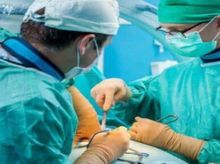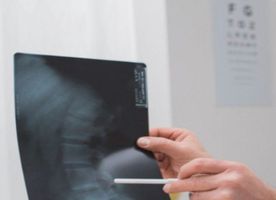Spine Surgery in Berlin
Search and Compare the Best Clinics and Doctors at the Lowest Prices for Spine Surgery in Berlin













































































































































No Time?
Tell us what you're looking for and we'll reach out to the top clinics all at once
What does a Spine Surgery Procedure Involve?
All types of spine surgery are carried out under general anesthetic. In general, spine surgery can be performed through traditional open surgery or minimally invasive surgery. With open surgery, your surgeon makes a long incision down your back and moves aside the muscles and soft tissue around the spine to access the affected area. With minimally invasive surgery, your surgeon makes a small incision and inserts a device known as a tubular retractor to create a tunnel to the affected area, then; your surgeon puts small surgical tools through the device to work on the spine.
How Long Should I Stay in Berlin for a Spine Surgery Procedure?
The enduring effect on total wellbeing and the pace of recuperation are significantly influenced by the span of the patient's stay in Berlin for the Spine Surgery. The duration of confinement in the hospital could be anywhere from several days to a week, subject to the severity of spinal injury and the intricacy of the surgery. Medical complications after the operation and the patient's general health status could extend this period.
You generally need to stay in the hospital for two to seven days after spine surgery. Plan to stay in Berlin for at least five to ten days following the surgery because you need to attend follow-up checkups where your surgeon removes your stitches and monitor your healing progress.
What's the Recovery Time for Spine Surgery Procedures in Berlin?
The duration required for recuperation after undergoing Spine Surgery procedures in Berlin often worries patients. The recovery period can greatly differ depending on the patient, the particular surgery conducted, and the intensity of the operation. After open surgery, the complete recovery may take up to six months, but you should be able to go back to work and some light activities within 3 to 4 weeks. After minimally invasive surgery, you should be able to return to work and resume most of your activities within two weeks.
The first phase of the recovery process involves healing from the surgery itself, which can span over several weeks. In this phase, it's critical to manage discomfort and guard against infections. Detailed instructions on caring for the wound will be provided by your medical practitioner, and you may need to consume drugs to control pain and swelling. Eventually, under the supervision of a qualified therapist, you can begin physiotherapy exercises designed to regain movement and strength in the spinal region.
What sort of Aftercare is Required for Spine Surgery Procedures in Berlin?
Post-treatment follow-up after a Spine Surgery in the Berlin is a vital part of healing. This usually entails a mix of managing pain, benefiting from physical therapy, looking after the wound, and living healthily. You usually control pain through medications prescribed by medical professionals; these should be taken strictly as directed. Effectively managing pain is fundamental as it can considerably restrict your active participation in other areas of post-procedure care like physical therapy.
Undergoing physical therapy forms an indispensable part of the follow-up treatment, aiding you to restore strength, flexibility, and overall movement abilities. The process often kickstarts in the hospital under a licensed therapist and gets carried forward at home or an outpatient setting. Moreover, maintaining good wound hygiene is a critical facet of healing that involves keeping the site of surgery clean and watching out for possible infection signs.
What's the Success Rate of Spine Surgery Procedures in Berlin?
The success rate of spine surgery is generally high, with about 72% to 90% of patients experience relief of their pain after surgery. Despite this, it depends on the patient's overall well-being, the particular characteristics of their spinal condition, the kind of procedure conducted, and the proficiency of the surgical team. It is equally important for patients to faithfully follow the rehabilitation regimen and lifestyle guidance after surgery.
Are there Alternatives to Spine Surgery Procedures in Berlin?
The alternative depends on your specific condition. For instance, if you experience back pain, your surgeon may recommend you to have regular exercise and physical therapies. Most types of back pain do not need surgery, so your doctor may prescribe medication to help with the pain.
There are instances where less intrusive spinal methods such as Microdiscectomy, Spinal Fusion, or Laminectomy could present as substitutes. Typically, these procedures are lesser in severity to the physical body and frequently produce less discomfort and quicker recuperation periods. In addition, modalities such as acupuncture, soft tissue manipulation, or chiropractic care might be advantageous for several patients. It's vitally important to have a dialogue with your caregiver about these possible replacements to ascertain the optimal path forward for your particular situation.
This information has been accurately sourced and verified by a medical professional for its accuracy, however, we strongly recommend you to consult with your doctor before pursuing medical procedures overseas.
















